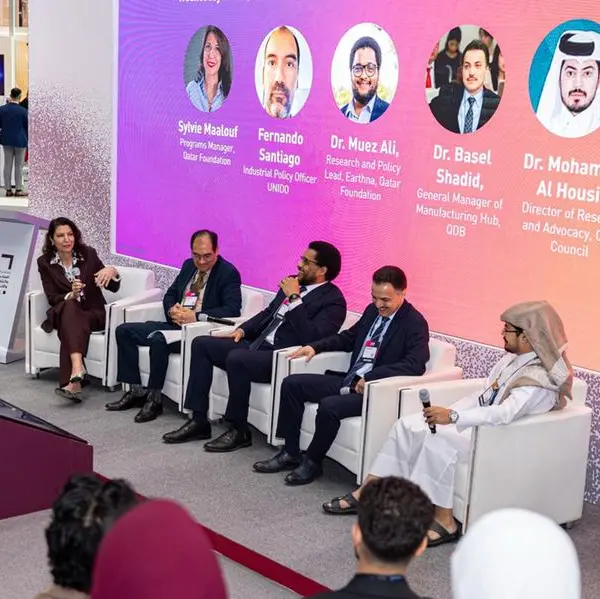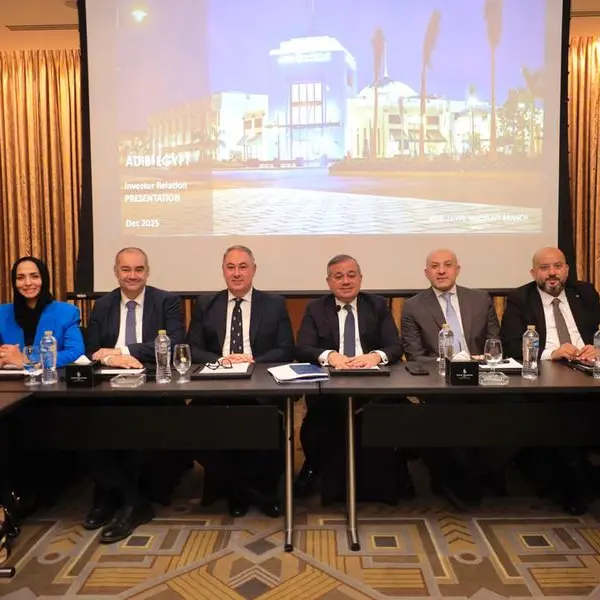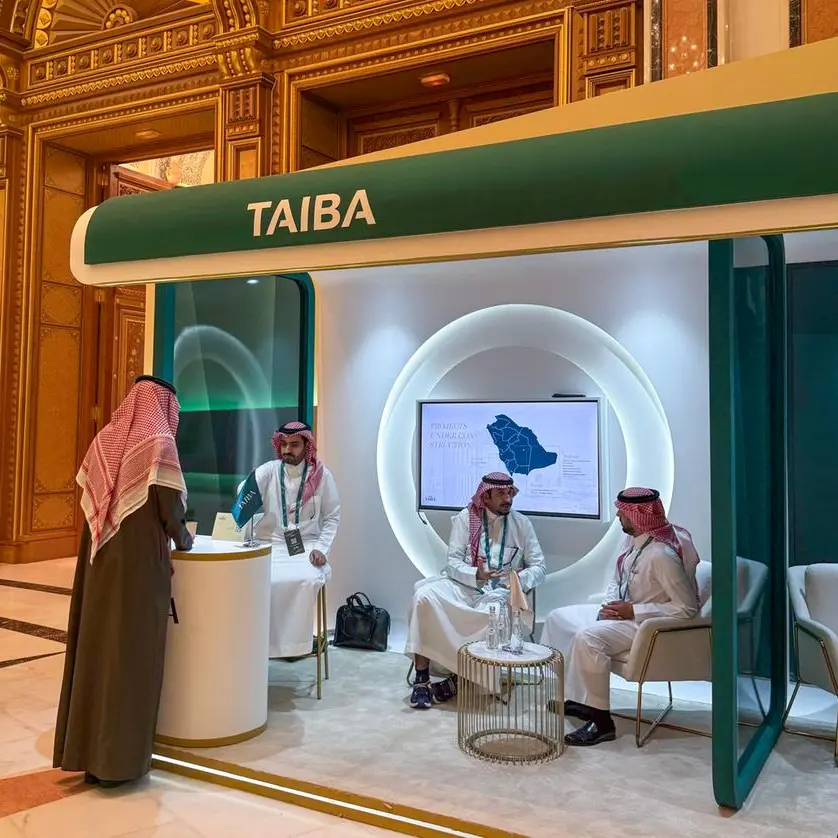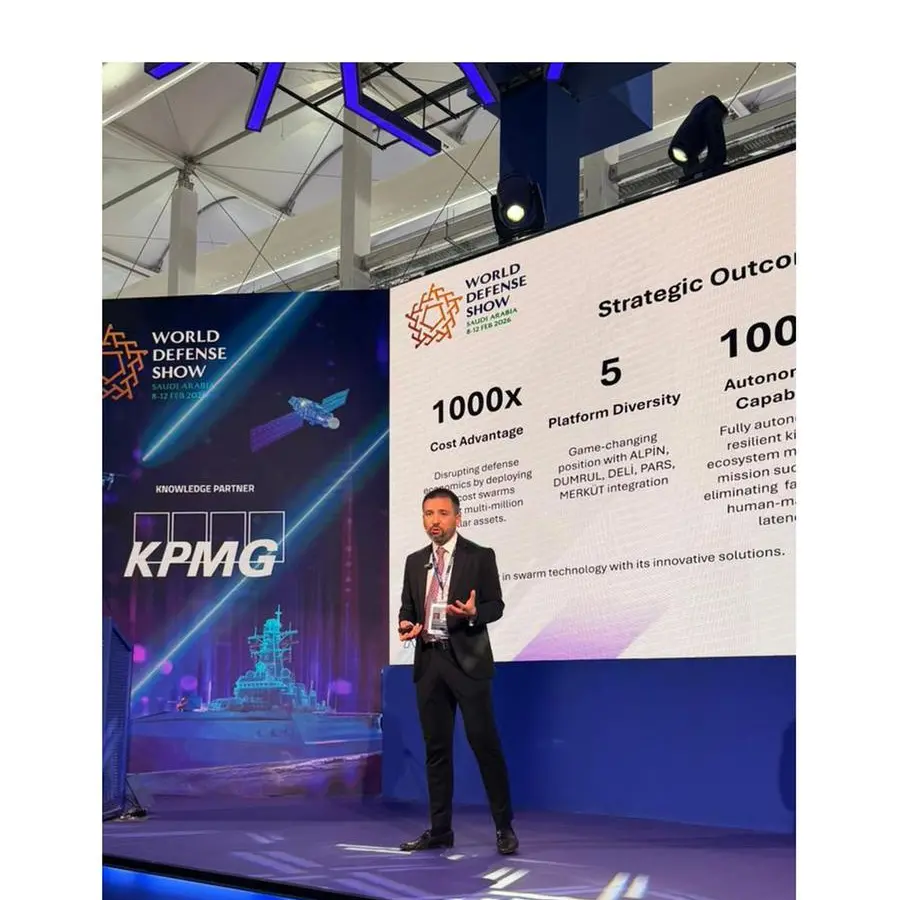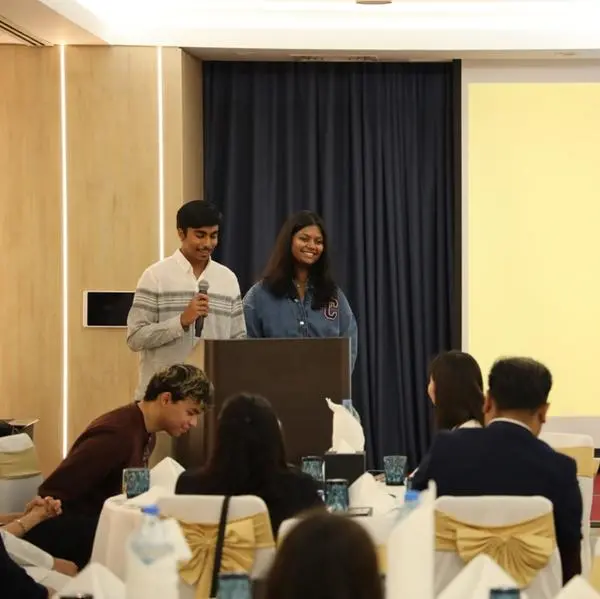Pearl Initiative's "Women's Careers in the GCC - The CEO Agenda" is culmination of in-depth survey of over 600 businesswomen across the GCC Region
Research makes five key recommendations to boost the number of women in the workplace
Juggling working life and responsibilities at home is one of the biggest challenges facing working women in the GCC
Dubai, UAE; 15 April, 2015: Career women in the GCC are ambitious and want to lead in their organisations, with over 50 per cent of those surveyed aiming at senior or board level position within the next seven years, according to a breakthrough report conducted by the Pearl Initiative, the leading independent private sector-led, not-for-profit organisation working across the Gulf Region to influence and improve corporate accountability and transparency.
Launched today at the inaugural Pearl Initiative and United Nations Global Compact regional Forum held in Dubai under the Patronage of His Highness Sheikh Hamdan Bin Mohammed Bin Rashid Al Maktoum, Crown Prince of Dubai, the report's findings and recommendations are consistent with the Women Empowerment Principles, an initiative co-developed by the United Nations Global Compact and UN Women.
The report, titled 'Women's Careers in the GCC - The CEO Agenda', follows a GCC-wide research programme on women in senior management conducted by the Pearl Initiative in collaboration with United Nations Global Compact and the Sharjah Business Women Council. The report, supported by Alwaleed bin Talal Foundation, GE, PwC, and Tamer Group, examines the position of women on the corporate ladder across the Region, and seeks to determine what can be done to increase equity in the workplace across all levels. The report states that only 12 per cent of CEOs around the world are female and women are lost from the career progression pipeline two to three times faster than men, despite global hiring rates being equal between genders.
In spite of the challenges, women in the GCC understand the importance of a good education and have high aspirations when it comes to their career with 62 per cent of those surveyed aspiring to a management role in the next seven years while 86 per cent think that education has been vital for their career progression.
"Countries in the GCC have made significant strides in recent years by increasing the participation of women in tertiary education and in the workforce. Yet the number of women advancing to senior executive and board levels within organisations in the GCC remains low," said Imelda Dunlop, Executive Director, Pearl Initiative.
"Our report released today clearly shows that women in the GCC have high aspirations and ambitions. It's aimed at the CEO's agenda because it is the CEOs who have the business incentives and the power to drive the policies that can strengthen the pipeline of female talent through to senior levels, and thereby build more competitive and well-governed organisations across the Region." she added.
The report, which polled more than 600 senior businesswomen across the GCC, makes five key recommendations for senior management:
Improve work/life balance: flexible working is key, with performance appraisal based on achievements rather than time spent in the office.
Create a balanced culture: CEOs can play a vital role by visibly supporting women at work. The key is to ensure more women make it through middle management to more senior positions, and the 'tone in the middle' will take its cue from the 'tone at the top'
Invest in building career paths, not only more support and mentoring for talented women, but more diversity training for men.
Adopt HR policies that ensure equity in the workplace, including policies on recruitment, maternity leave, pay and promotion, and targets for numbers of women at each managerial level.
Be an advocate in the wider community, by using their own public profile to raise awareness of the value of a more diverse workplace, and the major contribution talented women can make to their organisations and economies.
While the report acknowledges the significant progress that has been made in the region for working women, it highlights several key areas of concern. 80 per cent of working women in the GCC feel that they are disadvantaged in the workplace simply for being a women. In the same way, only 25 per cent of the women polled think they are treated equally in the workplace with 75 per cent saying they cannot advance as quickly as men.
Juggling working life and responsibilities at home is one of the biggest challenges facing working women in the GCC. While 71 per cent think their family has been vital to their career progression, 34 per cent do not want to sacrifice other aspects of life such as the family. 45 per cent believe that a good work-life balance is feasible and 64 per cent believe that society thinks it is acceptable for married women with children to work.
"GE focuses on empowering women by providing rewarding career opportunities, building their competencies with leadership training programmes, and mentoring through our dedicated Women's Network. This is particularly relevant for the region, where inclusion of women at the workplace is a top social development priority for the governments. The culture of empowering women at senior levels helps drive better governance and make the organisation more competitive and profitable," said Nabil Habayeb, President & CEO, GE Middle East, North Africa & Turkey.
In a partnership announced last year, GE joined the Pearl Initiative as a partner for the research programme to understand how regional organisations can strengthen the pipeline of female talent rising through the levels to executive and Board level roles. The findings of the report will be developed into practical programmes designed to attract, retain and develop women into senior positions throughout the GCC region.
PwC, a strong advocate for women in leadership, played an active role in the development of the report, including hosting focus groups and lending expertise to the research and development of the project.
Commenting on the launch of the survey Hani Ashkar, PwC Middle East Senior Partner said: "Our 2015 global research demonstrates that female millennials are becoming a larger part of the global talent pool and represent a new era of female talent - they will form approximately 25 per cent of the global workforce by 2020. To compete effectively, organisations must better understand how to attract, develop, engage and retain female millennial talent."
The Women's Careers in the GCC - The CEO Agenda will be distributed widely and freely across the region and internationally, and is downloadable from the Pearl Initiative website www.pearlinitiative.org.
For more information about Pearl Initiative
Claire Valdini
ASDA'A Burson-Marsteller
Tel: +971 (0) 4 4507 616
Email: claire.valdini@bm.com
About Pearl Initiative
The Pearl Initiative is the leading independent, not-for-profit, by-business for-business, organisation working across the Gulf Region of the Middle East to influence and improve corporate accountability and transparency.
Pearl Initiative is a regionally-focused growing network of business leaders committed to driving joint action, exhibiting positive leadership and sharing knowledge and experience in order to positively influence the entire regional business and student community towards implementing higher standards in areas such as governance in family firms, diversity in leadership teams, anti-corruption, integrity in the supply chain, corporate reporting and responsible investment.
Originally developed in cooperation with the United Nations Office for Partnerships in 2010, the Pearl Initiative and the United Nations Global Compact drive joint programmes in 2013, as part of their Strategic Partnership, in order to advance the adoption of the "Ten Principles" by the private sector within the Gulf region.
© Press Release 2015
